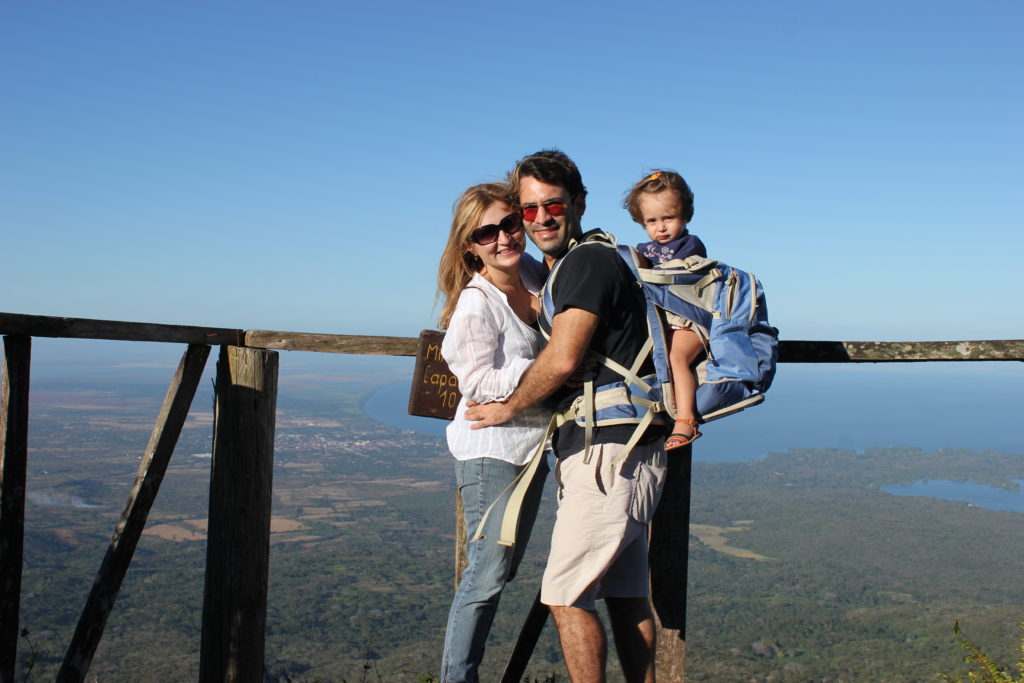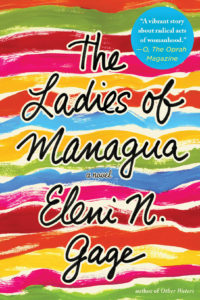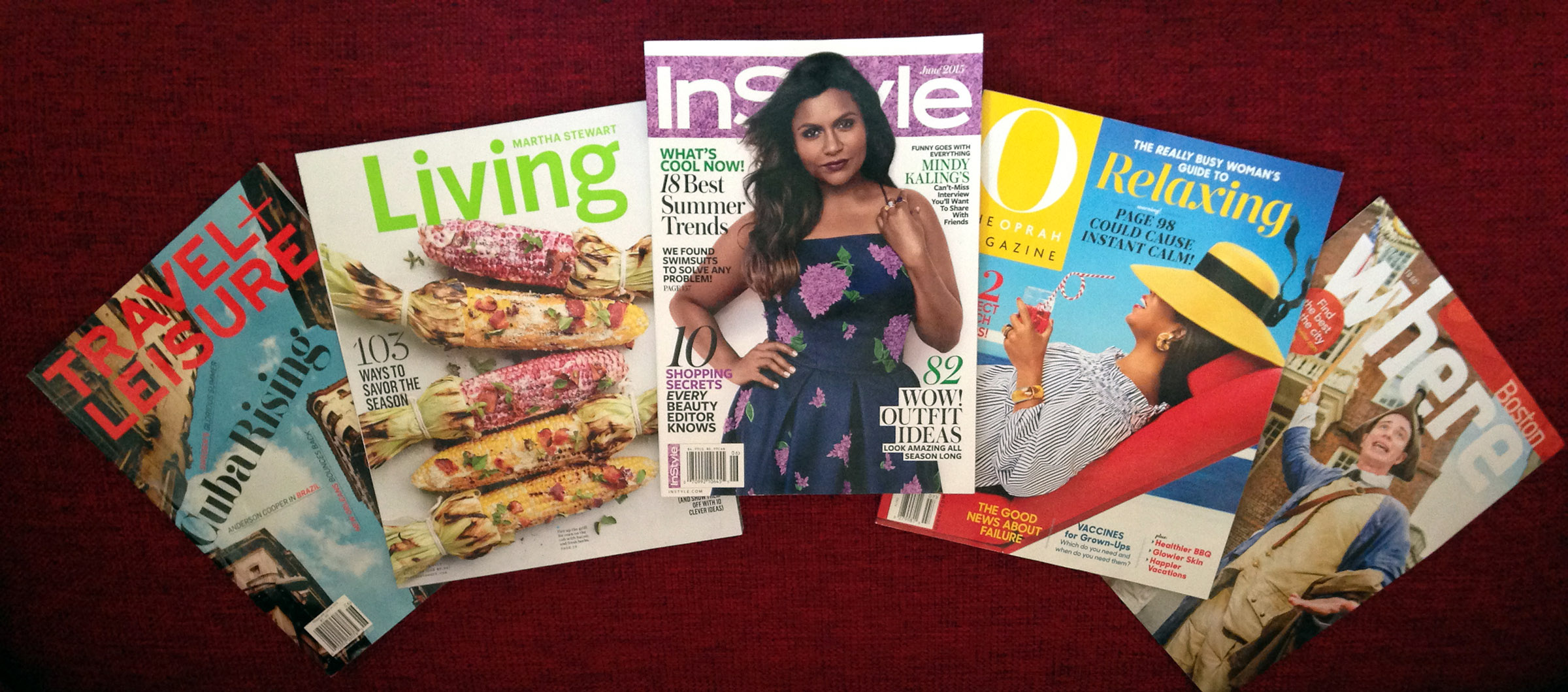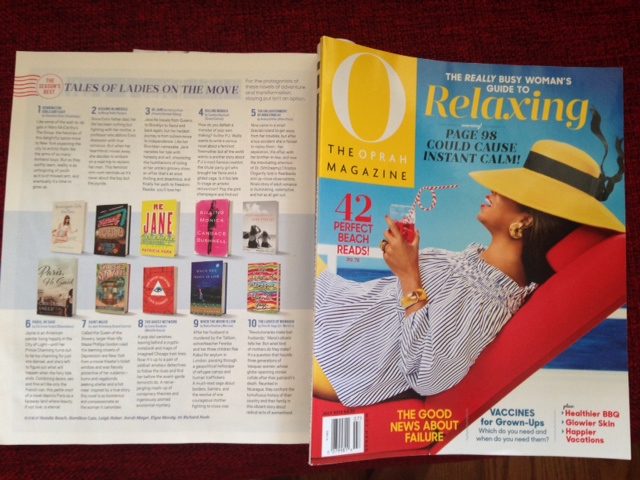I married the first Nicaraguan I’d ever met. A year later, I gave birth to our Greekaraguan daughter. Four years after that, we had a double whammy of an exciting year: first, our son was born in April, 2015. Then, almost five years to the day after we got engaged, we welcomed another product of our union: my second novel The Ladies of Managua, which was published in May, 2015 by St. Martin’s Press.
The book follows three generations of women, each with her own secret, as they explore their intense relationships to each other, and to their homeland, Nicaragua. Here’s the official description:
When Maria Vazquez returns to Nicaragua for her beloved grandfather’s funeral, she brings with her a mysterious package from her grandmother’s past—and a secret of her own. And she also carries the burden of her tense relationship with her mother Ninexin, once a storied revolutionary, now a tireless government employee. Between Maria and Ninexin lies a chasm created by the death of Maria’s father, who was killed during the revolution when Maria was an infant, leaving her to be raised by her grandmother Isabela as Ninexin worked to build the new Nicaragua. While Ninexin tries to reach her daughter, Maria wrestles with her expectations for her romance with an older man. In the meantime, Isabela, the mourning widow, is consumed by her memories of attending boarding school in 1950’s New Orleans, where she loved and lost almost sixty years ago. When the three women come together to bid farewell to the man who anchored their family, they are forced to confront their complicated, passionate relationships with each other and with their country—and to reveal the secrets that each of them has worked to conceal. Lushly evocative of Nicaragua, its tumultuous history, and vibrant present, The Ladies of Managua brings you into the lives of three strong and magnetic women, as they uncover the ramifications of the choices they made in their pasts and begin to understand the ways in which love can shape their futures.
I wrote the first draft of the book over the course of seven magical (and quasi-magical-realist) months during which Emilio, Amalía, and I lived in Granada, Nicaragua, while he completed a project for his work as a coffee trader. We had parrots and turtles in the yard, horse-and-carriages and religious parades in the streets, angels in the architecture, and that elusive but essential element required by so many writers: affordable, incredible child care. Inspired by the scenery (and the scandalous past of Emilio’s grandmother), I felt compelled to tell the stories of the three main characters, each speaking in her own voice. I also traveled the country in the course of my research, discovering for myself why it’s such an incredible destination.
Long story short, I fell in love with the country as I had with the man. And I learned for myself one of the lessons the ladies of Managua discover: love doesn’t subtract, it multiplies.

For some images of Nicaragua (as well as a few other destinations described in the book, such as New York and New Orleans), watch this 3 minute video of Scenes from The Ladies of Managua.
If you’re reading The Ladies of Managua with a book club, you’ll find discussion questions here.
Reviews for The Ladies of Managua
The Ladies of Managua was included in PopSugar’s “May Must-Reads,” “25 Empowering Books Every Badass Latina Boss-Lady Should Read,” “50+ Books Every Latina Should Read in Her Lifetime,” and “200 Best Books of 2015“; Brit & Co.’s “14 Must-Read Books for May,” and Riffle’s “Top Ten Mother’s Day Reads” and “Top Fiction Editor’s Picks for May.” More kind words are listed below, along with a few interviews.
O magazine calls The Ladies of Managua “a vibrant story about radical acts of womanhood.”
Publishers Weekly says that “glimpses of the beautiful landscape and the history of Nicaragua provide a backdrop to a universal narrative of hurt and forgiveness.” The full text of the review is as follows: “In Gage’s (sweet, stately story, three generations of women reunite in Managua, Nicaragua, for a family funeral, where they reflect on their loves, losses, and what the future holds for each of them. Isabela, burying her husband of over 50 years, slips into memories of her first love while her daughter, Ninexin, who left her husband and child to fight for her country, longs to reconnect with her own daughter, Maria, who returns to Nicaragua from New York as an adult with secrets of her own. Unfolding in an unhurried fashion through these three alternating viewpoints, the first half of the book revolves around each woman’s interior reflections: Maria’s anxiety over her noncommittal boyfriend and her long-held resentment toward her mother, Ninexin’s guilt at leaving her daughter behind, and Isabela’s absorption in reliving a long-ago love affair. The story comes to life, however, as mysteries are revealed, such as just what Maria is running away from and the true circumstances of Maria’s father’s death as a young, idealistic revolutionary. Along the way, glimpses of the beautiful landscape and the history of Nicaragua provide a backdrop to a universal narrative of hurt and forgiveness.”
Kirkus Reviews write-up describes this as “a story about the revolutionary lives women make for themselves out of necessity, out of commitment, out of passion,” and says “This novel fairly begs to be filmed…From the closely chaperoned lives of schoolgirls in 1950s New Orleans, where Isabela was a student, to the explosive insurrection of 1970s and ’80s Nicaragua to the sniping artistic world of 2010s New York, Gage carefully and thoughtfully explores the social demands placed on women and the repercussions of submitting to or defying them.” Read the rest of this amazingly thoughtful review here.
“Readers will find themselves completely absorbed in this rich, multigenerational tale of love lost and reclaimed.” —Booklist
 “If you’re stuck at home, get away with the three women in The Ladies of Managua…which transports you to Nicaragua and New Orleans”⎯Martha Stewart Living
“If you’re stuck at home, get away with the three women in The Ladies of Managua…which transports you to Nicaragua and New Orleans”⎯Martha Stewart Living
 “Spellbinding” —Travel+Leisure
“Spellbinding” —Travel+Leisure
“This smart page-turner about love, family, and passion comes with a bonus: lush evocations of fascinating Nicaragua.” —InStyle
“The Ladies of Managua is a beautiful story of mothers, daughters, and family.” —”Top Fiction Reads,” Riffle.com
The Ladies of Managua spans a fascinating range of locations and times. Ninexin’s reserve, Isabela’s propriety and Maria’s passion make for entertaining interactions, and the lush Nicaraguan setting adds an appealing layer of interest. In The Ladies of Managua, Eleni N. Gage (Other Waters) has again combined a strong heroine and captivating setting in a winning novel.” —Shelf Awareness
“I love books that draw you in and don’t let you go—such is The Ladies of Managua.”—Wandering Educators
The Ladies of Managua skillfully explores the relationships of these three women and asks questions about family, identity, and the nature of love.”—Riffle Backstory
Advance Praise for The Ladies of Managua
“The three women at the center of Eleni Gage’s new novel will stir readers with their fierce voices and independent spirits. Multigenerational and international in scope, this tale of love, betrayal, and nation-building is both intimate and confiding, soaring and passionate. A luscious read.” -Diana Abu-Jaber is the author of Crescent and Birds of Paradise
Full of heart and wisdom, this entertaining novel examines a troubled history through the lens of a complex family, and illuminates the lives of women in three distinct and memorable voices. Gage writes with great authority, refreshing humor and rich insight.” -Christopher Castellani, author of All This Talk of Love
“This novel is a work of fiction that is, at its core, very real, full of vivid descriptions of a place I know intimately: the archipelago of Solentiname. I recommend it highly.” -Ernesto Cardenal, nominee for the Nobel Prize in Literature
Eleni Gage vividly conveys the complexities of mother-daughter relationships, all the while exploring the tensions that emerge when national struggles disrupt the bonds of family. THE LADIES OF MANAGUA brings Nicaragua beautifully alive through the eyes of fierce and loyal women. Readers are going to fall hard for this book. -Chantel Acevedo author of The Distant Marvels and winner of the Latino International Book Award
“In this richly imagined, heartfelt book, a Nicaraguan man’s funeral brings together three generations of women at turning points in their lives…This is a complex, satisfying tale with wonderful characters, especially the lovable Isabela, who admonishes her girls to behave properly and cross their legs at the ankles, but in the end, follows her heart.” -Julie Wu, author of The Third Son, on The Ladies of Managua


